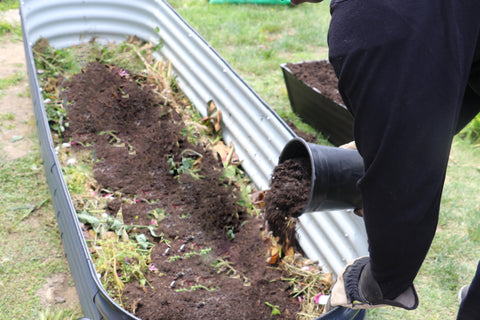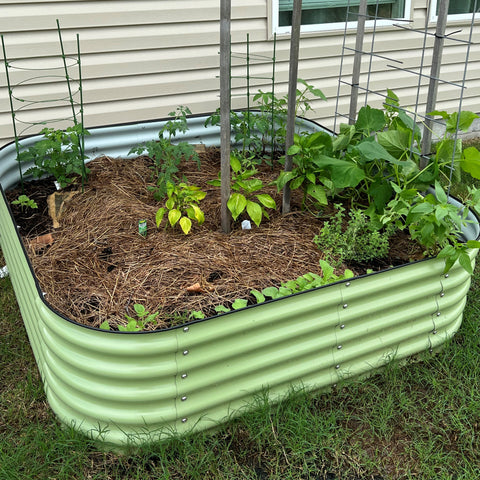Knowledge from Olle Garden Bed: Why is humus important in gardens
I like debunking myths, just as I like gardening. Myths are somewhat like plants. If you feed them, they will continue to grow. One myth that we need to stop feeding or recycling is that we declare compost to be humus. No. Just not. Stop. The following content also has some reference value for raised garden beds.
The terms "compost" and "humus" are not interchangeable. So "What's the difference between humus and compost?" And "How is humus used in gardens?" Would you ask? Read on to understand the dirt of compost and humus. Also, if you want to know why we now compare compost with the delicacies in your kitchen, I would like to take a moment to clarify the difference between humus and hummus. believe me. Humus is not so delicious.

Differences between humus and compost
Compost is black dirt, or "black gold" as we like to call it, which is decomposed from the organic matter we contribute, whether it is leftover food or yard garbage. When we leave fertile organic soil, composting is considered "completed", and our personal contributions are no longer distinguishable. What's more, I got a good harvest. I put "complete" in quotation marks for a reason.
If we want to be technical, it is really not finished, because it has not been completely decomposed. Many micro actions will still take place, because we really don't want to admit that there are still many substances of insects, bacteria, fungi and microorganisms that can be eaten and decomposed in the "black gold".
So basically, the finished compost we put in the garden actually only contains a small proportion of humus. It actually takes several years for compost to be completely decomposed into humus. When the compost is completely decomposed, it will be 100% humus.
What is humus made of?
When small animals continue their dinner party, they decompose things at the molecular level and slowly release nutrients into the soil for plants to absorb. Humus is what remains at the end of the dinner feast, when all available chemicals in organic matter are extracted by microorganisms.
Humus is essentially a dark organic matter in the soil, mainly a carbon based spongy substance, with a shelf life of hundreds of years or more. Therefore, looking back on the collapse of the whole compost and humus, although humus can be produced through the composting process (albeit very, very slowly), the compost is not humus until it is decomposed into dark organic materials that can no longer be decomposed.

Why is humus important?
How is humus used in gardens and why is it important? As I mentioned earlier, humus is spongy in nature. This is important because this property enables humus to withstand 90% of its weight of water, which means that humus rich soil will be better able to maintain water and be more drought resistant.
Humus sponges can also attach and protect nutrients needed by plants, such as calcium, magnesium and phosphorus. Plants can absorb these much-needed nutrients from humus through their roots.
Humus gives the soil a very ideal friable texture, and improves the soil structure by making the soil more loose, making air and water easier to flow. These are just a few important reasons why humus is important to your garden.
